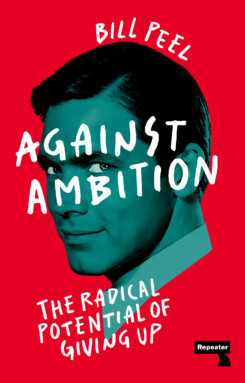£7.99 – £12.99
In 1963, the West Indian Marxist C.L.R. James posed the deceptively benign question: “What do they know of cricket, who only cricket know?”
A challenge to the public to re-consider cricket and its meaning, James was, all too subtly, attempting to counter the game’s elitist orthodoxy. Regrettably, he failed, and the history of cricket in England remains as it did a century ago — until now.
In examining recreational rather than professional (first-class) cricket, Different Class does not merely challenge the orthodoxy of English cricket, it demonstrates how the values and belief systems at its heart were developed in order to divide the English at every level of the game.
Indeed, be it the discrete cricket cultures of the “urban” North and the “rural” South of England, gender, social class or race; the history of recreational cricket tells us more about the (un)changing nature of English society — and how it works — than any study of the first-class game ever could.
Duncan Stone is a historian long interested in the social and cultural machinations of sport, the concept and application of amateurism and who, exactly, gets to define the form, function and meaning of sport. He has worked as a forensic photographer, DJ and club promoter, builder, local government officer and lecturer at the University of Huddersfield, and was previously a visiting researcher at Victoria University in Melbourne, Australia.
“A modern-day John Arlott: uncomfortable but indispensable reading for those who love cricket but may so far have avoided Duncan Stone’s vital home truths about the game.”
“Underneath cricket’s polished veneer of gentlemanly etiquette and fair play, the game has always been a seething cauldron of class conflict, racial hierarchy, and male chauvinism. In this fascinating journey through history, Duncan Stone goes back to the working-class roots of the game, lifts the lid on the myths that cricket lives by, and explains why it’s impossible not to love it.”
“A wonderfully researched book in the great traditions of British iconoclastic writing the author punctures many cherished myths about the game and is a book all cricket lovers should read to learn where the game has come from and what is still wrong with it.”
“Different Class is in that special category of books — not just lucid and cogent but necessary and invaluable.”
“At a time when the ECB seems intent on killing Test cricket, by commodifying it in search of quick profits, this book is a gentle reminder of the true ethos and variable pace of the game, etched in the memories of all who have played it at village or club level.”
“A warm, accessible but thorough-going account of how cricket and class are intertwined in England. Full of personal wit and charm but also rigour and drive.”
“As an ignorant Scotsman more concerned with football, the place of cricket in English life and culture has always bemused me. But Duncan Stone’s brilliant book has convinced me that it’s in fact a hugely important story that has shaped the meaning of class, region and race.”
“Perhaps the most invaluable contribution to cricket literature this century.”
“The nearest thing cricket writing has to E.P. Thompson.”
“Different Class is a story of social contempt… Stone tells a story in which democratic advance has failed to transform our sporting institutions.”
“The story of English cricket from the outset has been bedevilled not just by racism but by an ingrained culture war… impeccably researched.”
“I cannot recall a more provocative cricket book, nor one that is so timely.”
“An original and much needed reassertion of the sport’s roots in the era of the Indian Premier League and the ‘Hundred’”.




